自遊環踏
Looping Ride
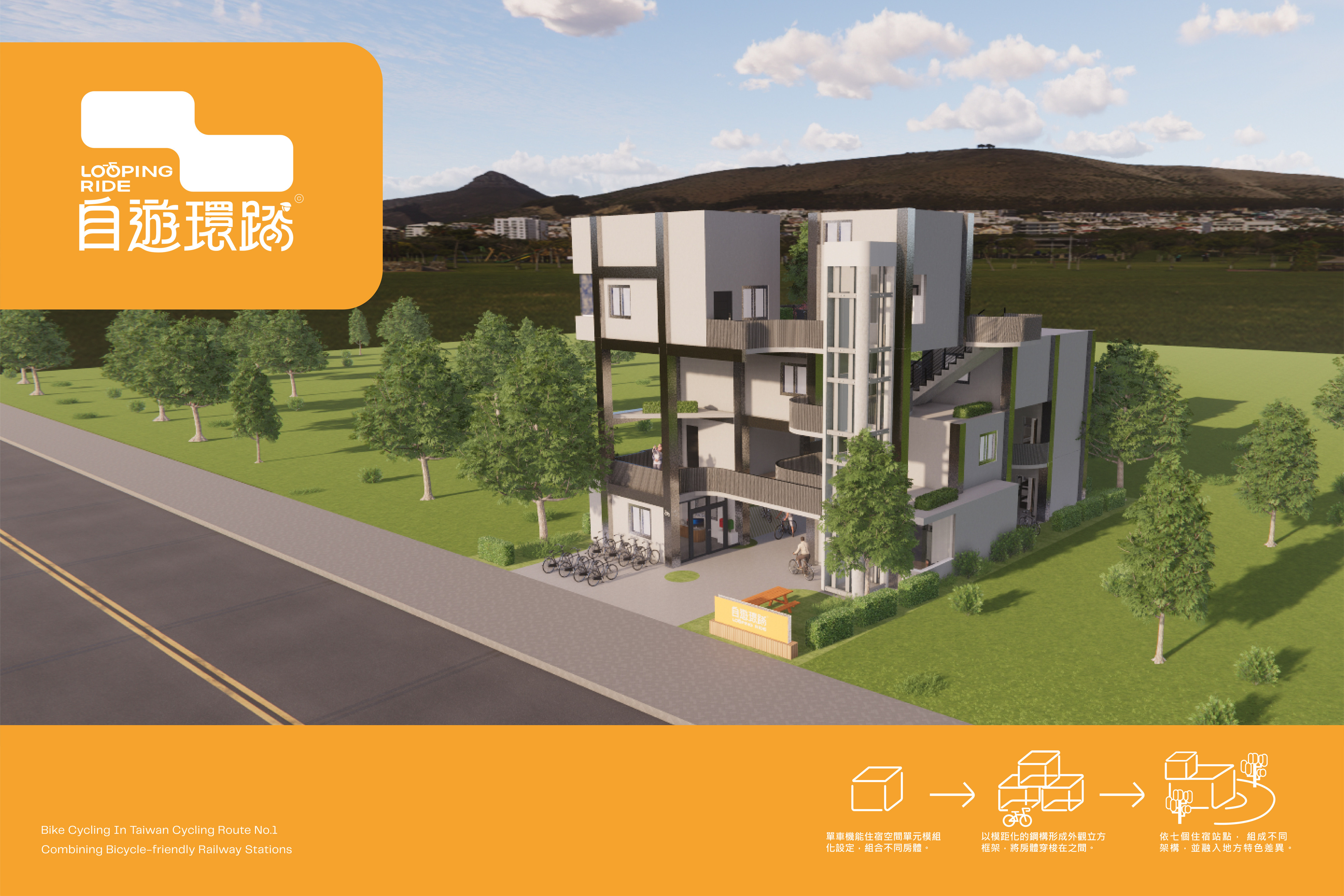
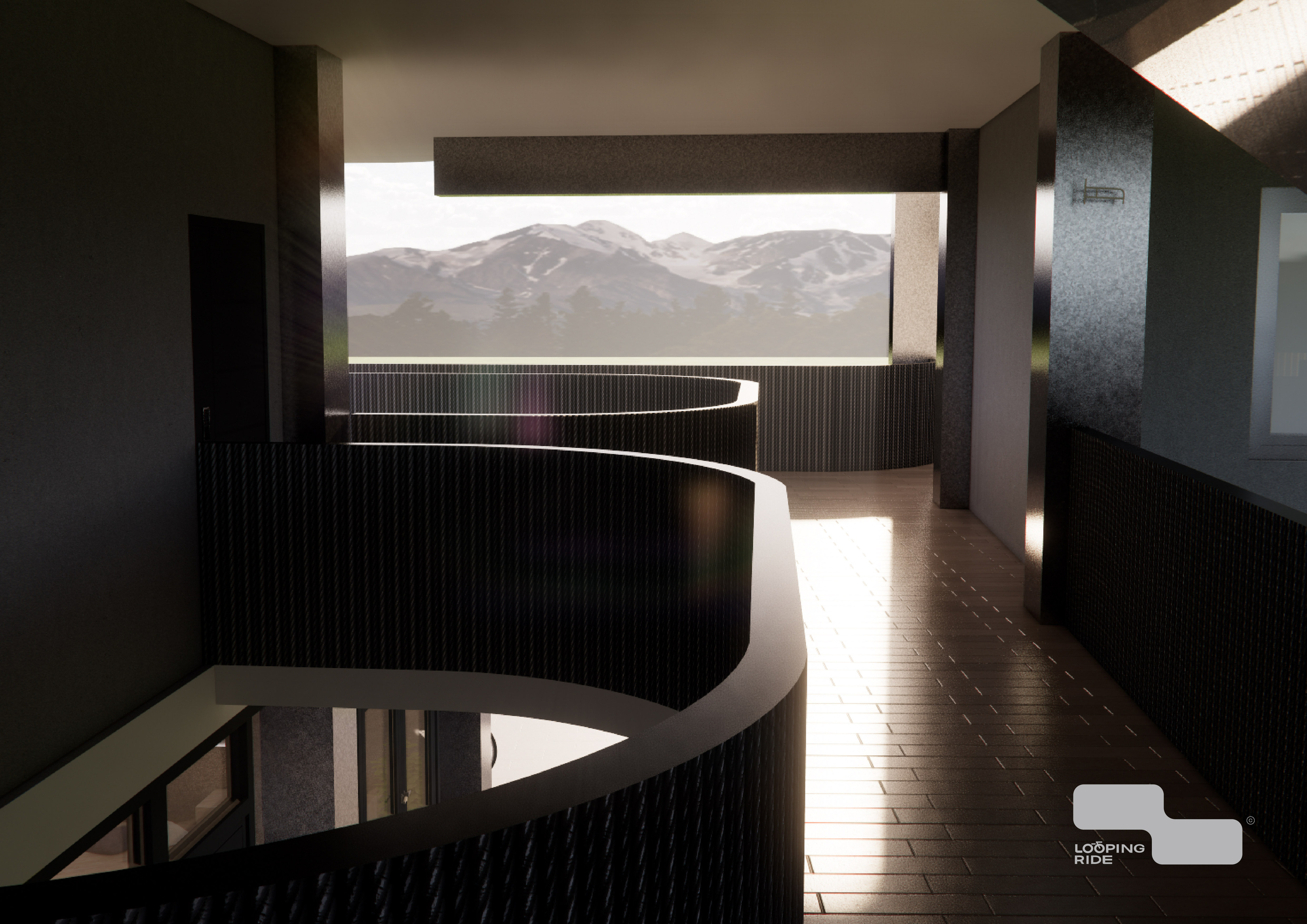
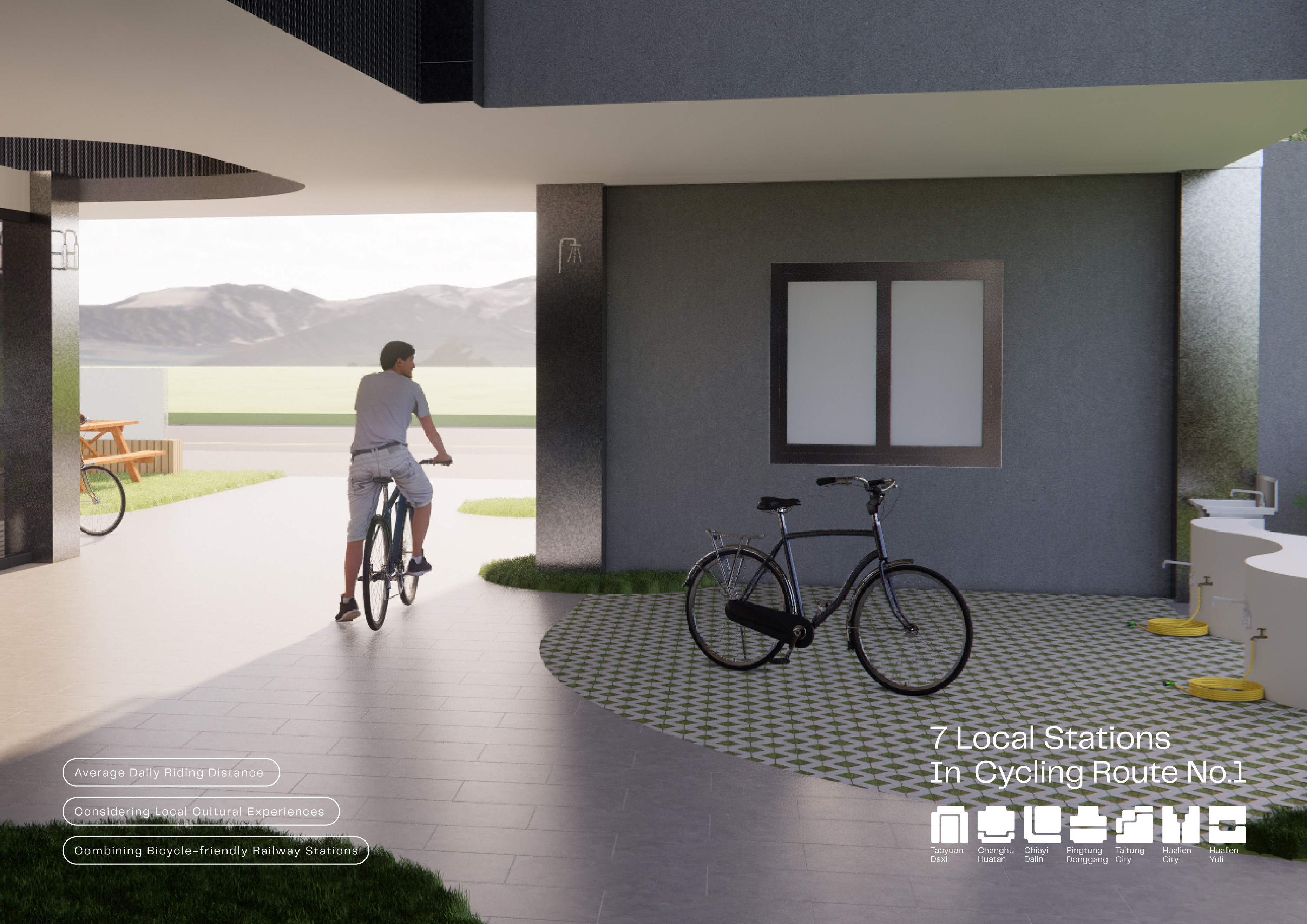
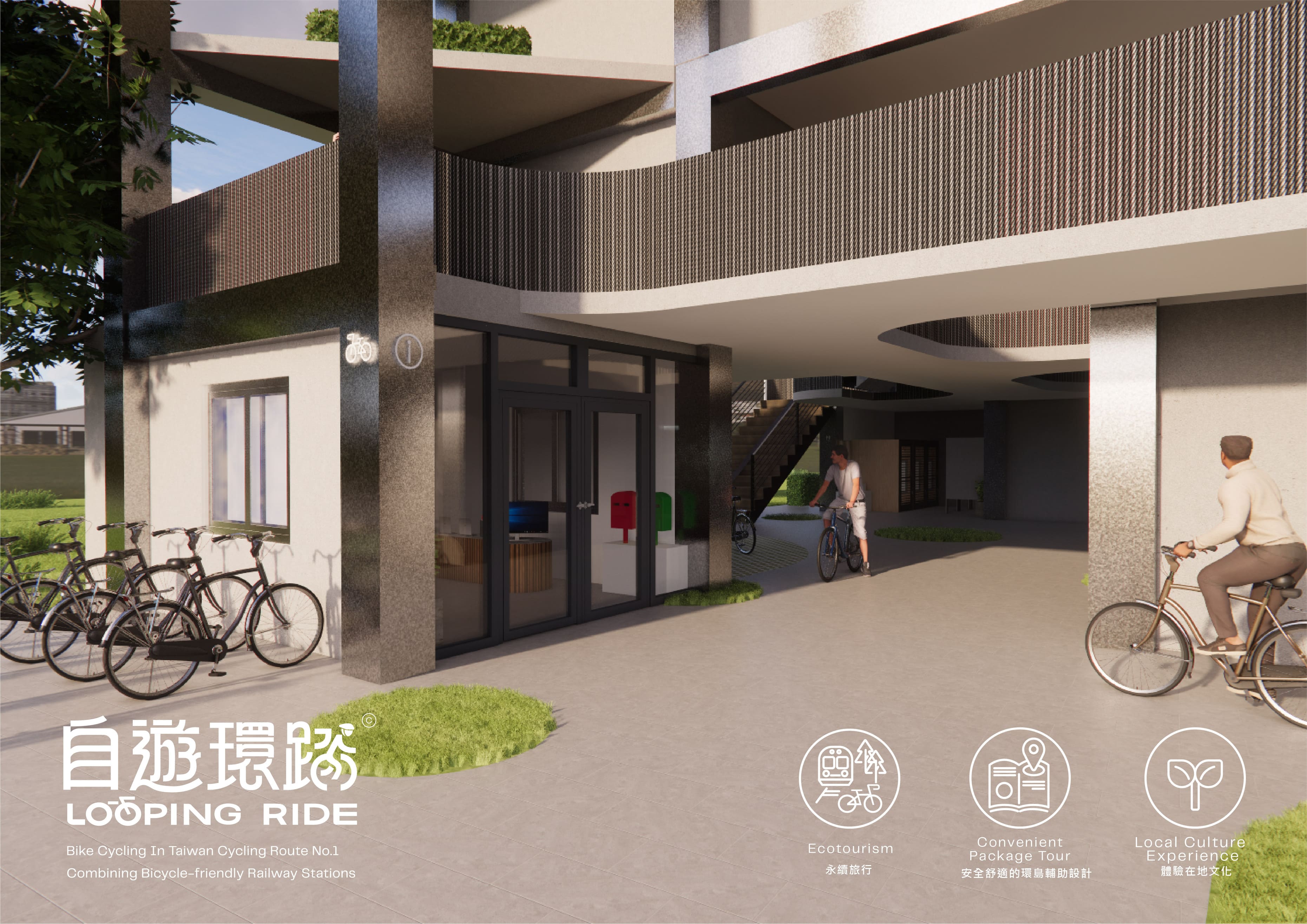
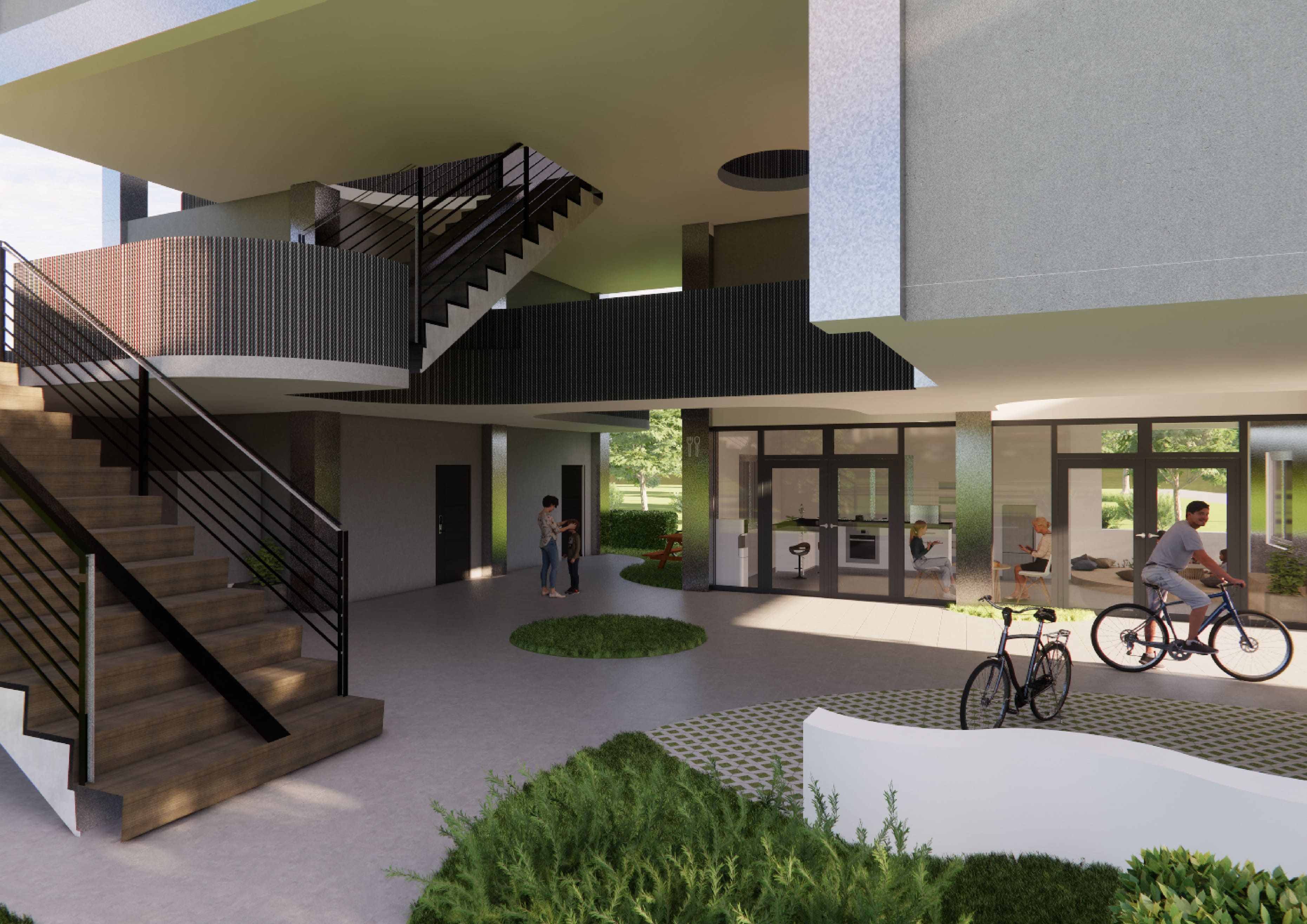
台灣擁有豐富的地形風貌,透過單車騎行結合雙鐵旅遊,用最適切的步調來更認識台灣土地。以環島一號線作為基礎,思考在地人文以及騎乘距離,在環島線上平均設置七個單車住宿驛站,提供旅客補給及配套機能設計。
驛站注重空間交流互動,在不同的模組間打造相互通的半戶外公共區域,並提供友善單車空間,規劃自行車停放區、自行車清潔區、自行車坡道、維修空間,提供工具租賃等,使單車族群能更方便解決過夜需求。
建築採模組化設計,利用鋼骨與牆面各自獨立的設計與施工,將複雜的設計及營建過程簡化及系統化。同時結合在地特色,打造永續綠建築,並推廣綠色低碳旅遊來串連台灣土地探索。此外驛站也打造了完整的服務流程給旅客,提供特色郵票等,讓旅客能在各個驛站投遞,將旅途中的感動寄給未來。
Looping Ride
Taiwan possesses diverse geographical landscapes. Based on Cycling Route No.1, we‘ve calculated the average daily riding distance, combined with cycling and train lines to explore the land at the most suitable pace. Meanwhile, we set up 7 accommodation stations along Cycling Route No.1 to provide travelers with supplies and supporting functional design.
The stations emphasize space for communication and interaction, creating interconnected semi-outdoor public areas connect different modules. They also provide cyclist-friendly spaces, including bicycle parking areas, cleaning zones, repair spaces, and tool rental services, making it more convenient for cyclists to meet their overnight needs.
The architecture adopts modular design, utilizing separate designs and construction for steel frames and wall panels, simplifying and systematizing the complex design and construction process. Additionally, it integrates local characteristics to create sustainable green buildings, promoting eco-friendly tourism to connect with Taiwan's land exploration. Furthermore, the stations offer a complete service process for travelers, providing unique postage services, allowing travelers to mail memories from each station, sending their journey's emotions to the future.
國立雲林科技大學 創意生活設計系
(四年級)
譚雅庭
國立雲林科技大學 創意生活設計系
(四年級)
陳韋蓁
國立雲林科技大學 創意生活設計系
(四年級) 指導老師 張岑瑤
林沂品